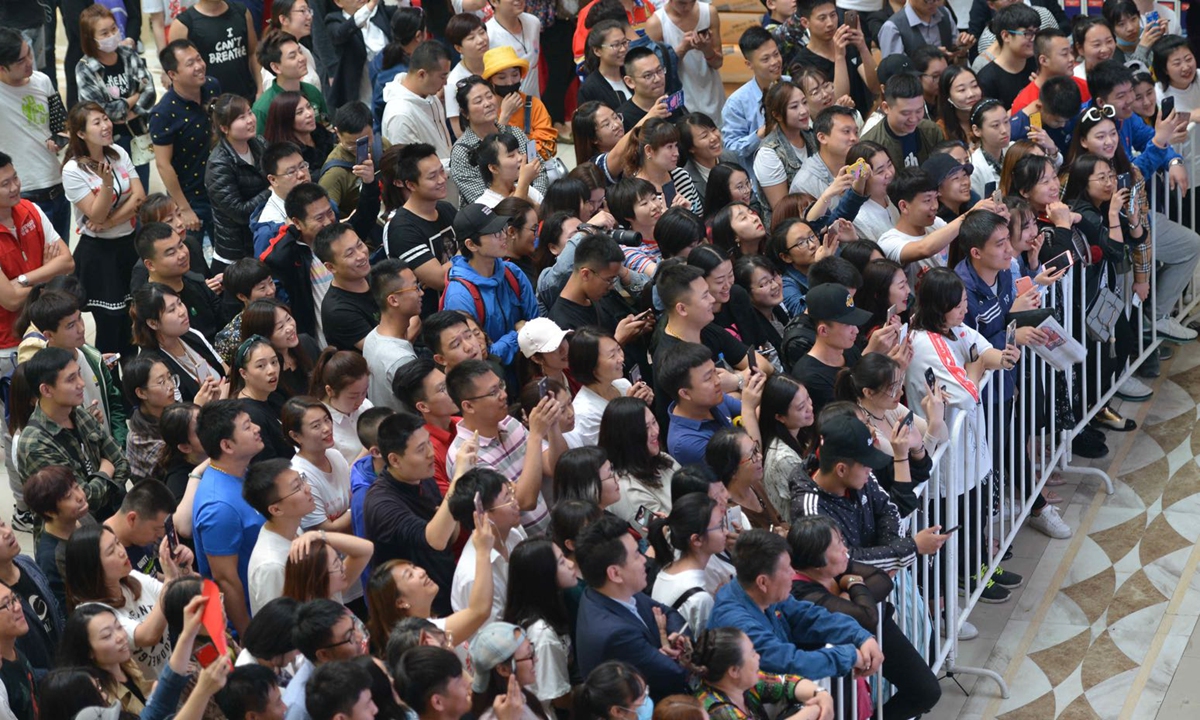China’s social media giant Sina Weibo suspends seven-year-old function ranking entertainers as government pushes new fan industry regulations

Fans wait for their idol. Photo: VCG
China’s Twitter-like social media platform Sina Weibo has suspended a seven-year-old function that ranks entertainers through fan voting in the wake of a campaign launched by the Chinese government to bring order to the country’s fan club industry.
The campaign, which has mobilized enterprises, individuals and government organizations to crack down on unhealthy fan culture, has made some progress after its implementation two months ago.
Besides the voting function on Sina Weibo, more than 150,000 posts containing negative information, over 4,000 illegal social media accounts and 814 unhealthy topics have been removed from the platform. More than 1,300 “problematic” fan groups have been dissolved, and reality shows have become a target of regulation, according to news website The Paper.
The Sina Weibo administration account announced on Friday that it had suspended the function ranking entertainers, which was first introduced in 2014.
Different from traditional lists, the “Star Power” ranking was initially based on four categories: number of mentions, interactions, searches and “fan love.” The ranking was further divided by country or region into smaller lists.
To ensure their favorite idol topped the ranking, some fans not only spent enormous amounts of time posting messages about their idol on Sina Weibo but also spent money to purchase software that enabled them to use multiple accounts to vote for their idols.
Fan Zhihui, a music industry analyst, told the Global Times on Tuesday that the ranking function on Sina Weibo is just one part of the “fan economy.”
“In addition to Sina Weibo, there are also various charts on the major audio and video platforms that are linked to commercial value. So many charts give rise to a large number of “gray industries” that live on producing false data for entertainers,” Fan said.
According to a Sina Weibo report, the various entertainers on the platform had a combined total of 21.6 billion followers in 2020.
The platform’s decision earned it compliments from netizens, who said they considered it as a step toward cleaning up the chaotic fan interactions on Sina Weibo.
Some netizens and analysts found that kinds of idols on the social media platforms are becoming more diverse instead of just referring to traditional entertainers.
During the Tokyo Olympic Games, a group of Chinese athletes, including sprinter Su Bingtian, 37-year-old weightlifter Lü Xiaojun and 14-year-old diver Quan Hongchan, conquered netizens’ hearts with their stunning performances and unrelenting spirit, thus becoming new idols for many young people.
“These athletes can set good examples for us,” one netizen wrote on Sina Weibo.
The hashtag "The Olympic Games have strongly corrected my aesthetic views" has swept Chinese social media platforms since Monday. It started with a post from Sina Weibo user "Feijia" that contained a photo of Chinese female fencer Sun Yiwen. In the post, Feijia said she was stunned by the athlete's beauty.

